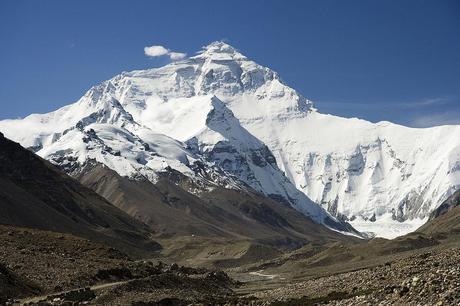 Whenever I discuss an expedition to Mt. Everest with someone who doesn't know much about mountaineering, I find that they are always surprised by two things. First, they have no idea that it takes roughly two months to summit the mountain after you factor in travel time to the Himalaya, getting to Base Camp, acclimatizing to the altitude, and waiting for the proper weather window. They are also continually shocked at how much an Everest climb actually costs, as they don't understand all the logistics involved.
Whenever I discuss an expedition to Mt. Everest with someone who doesn't know much about mountaineering, I find that they are always surprised by two things. First, they have no idea that it takes roughly two months to summit the mountain after you factor in travel time to the Himalaya, getting to Base Camp, acclimatizing to the altitude, and waiting for the proper weather window. They are also continually shocked at how much an Everest climb actually costs, as they don't understand all the logistics involved.To help all of us understand those costs better, each year, our friend Alan Arnette does a detailed analysis of the current going rates for an Everest climb. Yesterday, he posted the 2015 edition of his annual report, and it wasn't good news for prospective climbers. As Alan indicates in his report, costs have gone up substantially for the spring climbing season, and more companies are jumping across the border into Tibet in order to avoid ongoing strife between the Nepali government and the Sherpas in the wake of last year's shutdown on the South Side.
There are several significant factors that are causing the price of an Everest expedition to go up, including a raise in price for the climbing permit. This year, all climbers will be charged a flat-fee of $11,000 to get their name on a permit. In the past, it was usually about $10,000, with the overall price for the permit spread out across multiple climbers. Alan also says that more teams are increasing the amount of life insurance they are carrying for their Sherpa staff as well, going up from $10k to $15k, with the difference being covered by the clients of course. On top of that, Nepal has begun enforcing a 2012 rule that requires all trekkers and climbers to hire a local Sherpa guide for use during their visit. He estimated that will add an additional $4k to the price.
What does all of this mean for climbers wanting to attempt Everest? Alan says that the average price for a climb without western guides is now at $41,700. With western guides, that price rises to $57,000 on the South Side, and $46,000 on the North. In other words, it is a substantial sum of money no matter which side of the mountain you're climbing, and who you are climbing with. Alan is quick to point out that a few high-end guide services on the North Side are also skewing the average to a degree. Alpenglow and Himex have both jumped to the Chinese side of the mountain for 2015, and they charge $79,000 and $64,000 respectively. Without their numbers added into the mix, a North Side climb averages about $37,000.
But the big story isn't just the change in pricing. Alan says that there are major changes afoot in Nepal, as local operators take over the South Side. These companies have been offering good service for years, and now they have also learned the business side of leading expeditions as well. Many of these companies are now undercutting western guide services, and are attracting more and more clients. Alan warns that not all of these companies offer the same experience however, and that it remains a "buyer beware' environment.
This is just the very beginning of the report, as Alan also goes into the cost breakdown of the climb, examining the details of what you actually get for your money. He also looks at the price for planning your own Everest expedition, as well as the options for hiring guides, the size of teams, summit stats, and much more. Basically, this report contains everything you've ever wanted to know about putting together a climb on Everest, and then some.
If you follow the climate on Everest, much of what is reported here will come as no surprise. Considering the political fallout that came after the South Side was shutdown last spring, the future of expeditions to that side of the mountain remains a bit uncertain. Obviously the mountain is a cash-cow for the government of Nepal, but major disruptions could continue in the future, as disputes with labor still need to be resolved. It is a time of upheaval on Everest, and not all of the past conflicts have been settled just yet.
We still have a little over four months to go before the start of the busy Spring climbing season. It is already shaping up to be another interesting one.

